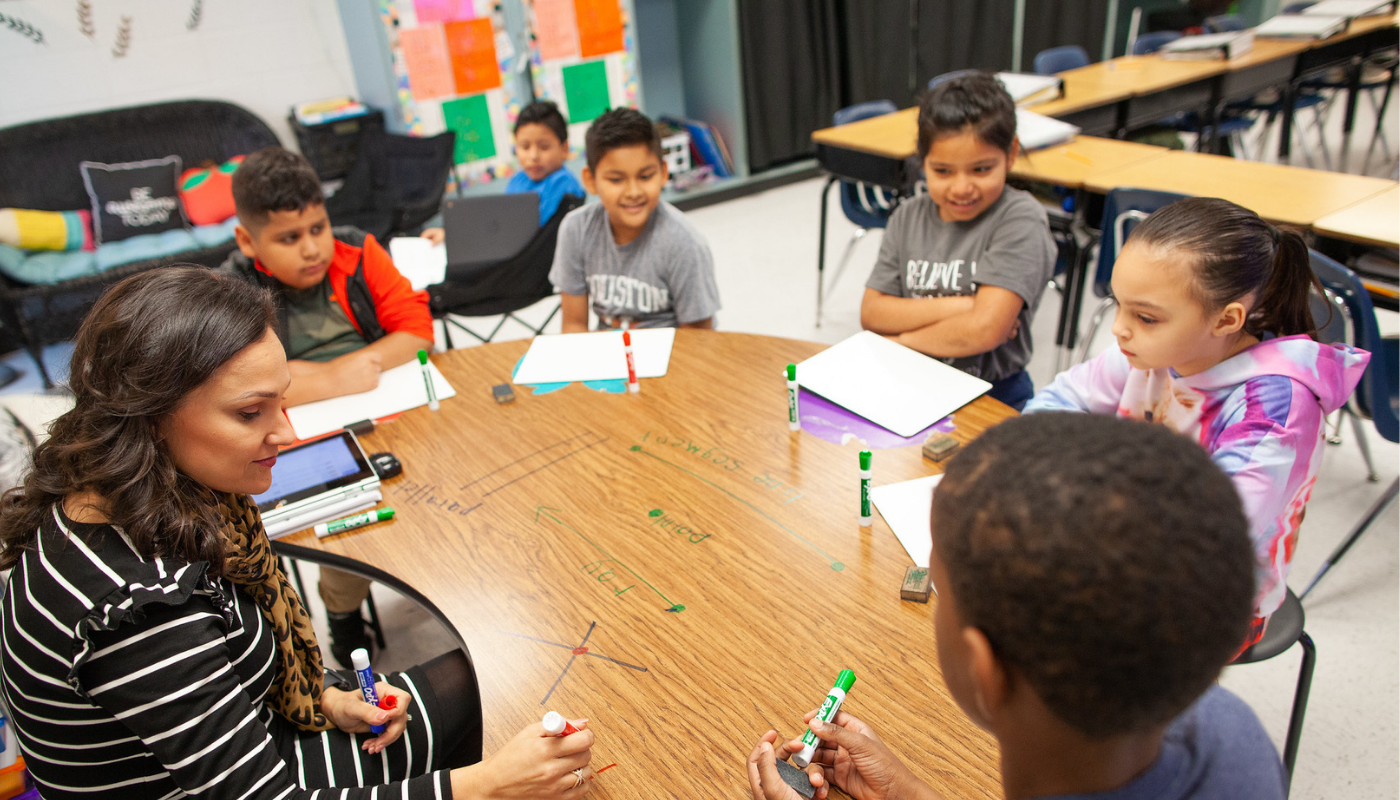
This is one of a four-part series on the research that supports and drives the Summit Learning program. The series focuses on Data-Driven Differentiation, Feedback, Student Motivation, and Mentoring.
Each student enters the classroom with a different set of skills and background knowledge than their peers. At Summit Learning, we celebrate the individuality of each student and use research to help ensure they are receiving the best possible education.
A “one-size-fits-all” approach to learning fails to meet the varied needs of students. Instead, we must acknowledge, appreciate, and attune to individual differences in order to support students’ growth and development.
Many teachers have done their best to differentiate their instruction for a long time, but it’s hard to consistently do this well without tools and resources. Summit Learning’s platform helps teachers use research-based best practices to support each student with what they need to make progress inside and outside of the classroom.
ASCD’s research by educators Carol Ann Tomlinson and Tonya R. Moon — Assessment and Student Success in a Differentiated Classroom — shows why data should be easily available to teachers to guide their decision-making. By having access to various data (including pre-assessments, formative assessments, and summative assessments), teachers are able to make informed decisions to meet each student’s individual needs.
Let’s take a closer look at how research is used in four key data-driven areas of our platform. The four images below show how teachers are able to see the data that informs their instruction and selection of assignments.
Figure 1: Student Cognitive Skill Scores
In Figure 1, a teacher is able to identify students who previously scored below their grade level on the Cognitive Skill of Modeling. This helps the teacher quickly provide the necessary support in this project to ensure those students improve their scores on this particular skill. A teacher is also able to directly assign a specific resource to those students within the platform.
Figure 2: Formative Assessment Data
In Figure 2, a teacher can easily monitor the progress of each student on a checkpoint within a project. This formative assessment data can inform instructional decisions over the course of the project. For example, a teacher could choose to hold a workshop with all of the students who are in the red “Stop and Revise” status to clarify any misconceptions and help them quickly improve their work.
Figure 3: Student Proficiency Data
In Figure 3, we see how data can strategically support math teachers. Our platform provides previous data on student proficiency in math concepts and current formative assessment data to help inform their teaching and instructional resources. In the above example, a teacher is able to see overall student proficiency and how students performed on individual questions in the assessment. This type of data can play a key role in supporting groups of students in their next math unit.
Figure 4: Formative Assessment Data
In Figure 4, teachers have an overview of formative assessment data in a given math unit. A teacher can quickly track how students have performed on daily formative assessments called “Cool Downs.” The data can be displayed to show how students performed across the math unit or can focus on how they are doing on specific concepts. This data helps teachers group students and assign scaffolds for the next lesson.
In all, data-driven differentiation helps teachers attune to individual differences in order to support students’ growth and development.

